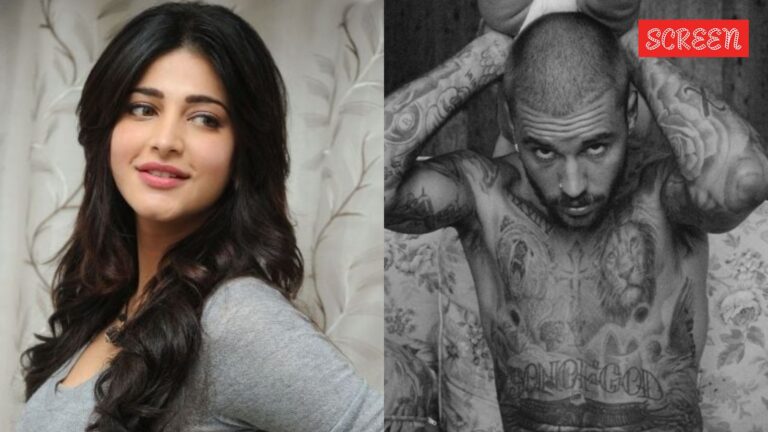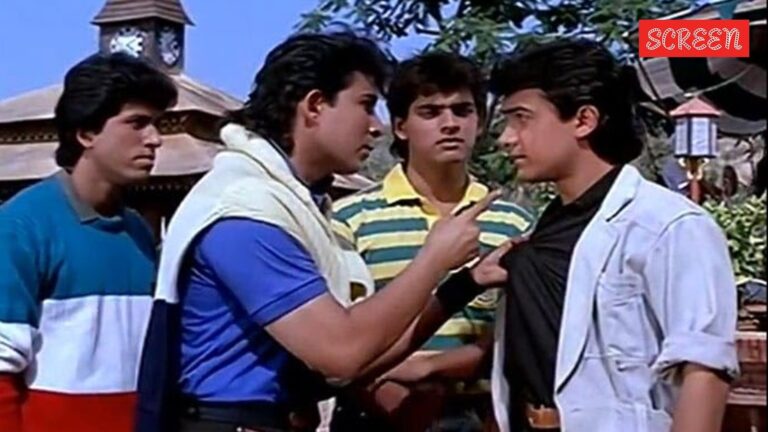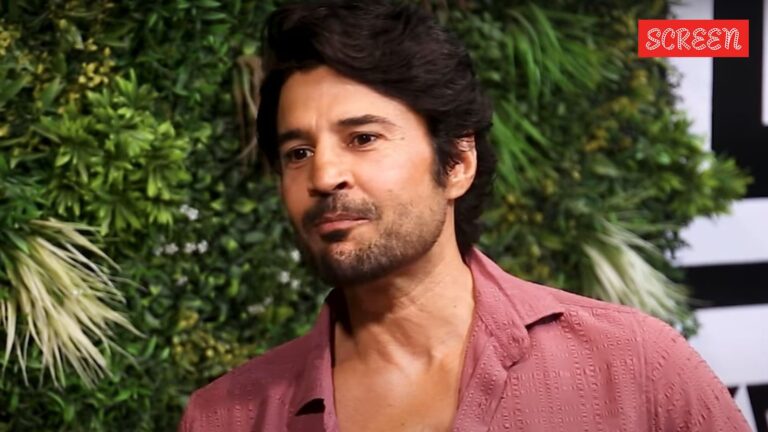Life in a Metro, which was released in 2007, was Bollywood’s take on a Love Actually format of storytelling. Multiple characters and love stories intersected with each other, building up to a glorious climax of love, laughter and tears. Now, almost two decades later, its spiritual sequel, Metro In Dino, was released in theatres recently. The new film has only one cast member in common with its predecessor, Konkona Sensharma, but it pays a few hat tips/tributes to the original film. Pankaj Tripathi, Neena Gupta and Fatima Sana Sheikh play characters who have namesakes in the original film. Aditya Roy Kapur repeats Shilpa Shetty’s dialogue “Shaadi kuch sikhaye na sikhaye, acting karna sikha deti hain (marriage may not teach you much, but it teaches you how to act)” and Sara Ali Khan gets to recreate memorable moments from the Konkona and Irrfan storyline. Then there is the band — this time Pritam is joined on screen by Papon and Raghav Chaitanya — who offer a musical reflection on the events happening on screen, or turn into a chorus when the actors sing their dialogues or lapse into song in the film’s exposition.
Though Metro In Dino is a refreshing watch after a slew of testosterone-laden sagas where men roar and women gaze wistfully at them; the film does not offer any new insights or perspectives into romance and relationships. A lot has changed between 2007 and 2025. Social media has redefined how we view ourselves and others, dating apps allow us to find Mr. Right now instead of Mr. Right, partners are more accessible, but commitment is elusive, and people are testing and bending the rules of caste and religion when it comes to choosing partners. The law has been changed to decriminalise same-sex relationships, and we have new relationship lingo like situationships, ghosting and breadcrumbing. Yet in Mr. Basu’s world, nothing much has changed. There is a conspicuous lack of representation in the film. While the absence of a queer or an inter-religious couple amongst the central characters may be attributed to the volatile socio-political climate we live in, the film’s conservative approach stifles its exploration of what love can look like in 2025.
Also Read | With Metro In Dino, Anurag Basu defies box office logic as he makes yet another mad, messy musical
There is a token youngster who is trying to figure out her sexual orientation. But when it comes to the adults, Anurag Basu goes into trad wife mode, celebrating old-fashioned ideas of marriage being a ‘pavitra rishta’ and a lifelong commitment to repeatedly falling in love with one another. Two of the husbands have 80s-coded ‘Ek hi bhool’ issues and use boredom and their gender as an excuse to philander and falter. The wives get angry, go away on a holiday, stop talking to or consider cheating on their husbands, but eventually forgive them. A wife almost strays too and feels so guilty that she quits her job and moves into the apartment her husband shares with his roommates. Anupam Kher channels Amitabh Bachchan from Babul and wants his daughter-in-law to move on. Unsurprisingly, moving on means moving on with a new male partner.
The film also seems hesitant to let its characters stay in painful, uncomfortable situations before emerging into the light. Music and lighting mellow the messiness, conflicts and communication struggles are masked with comedy, and the characters choose melodrama over tough conversations. The only memorable confrontation scene is between Konkona and Neena Gupta, and the actors perform brilliantly. It makes you wish that the film had more such real, raw moments where people expressed what they felt or what they needed from their relationship.
Watch interview with the cast and crew of Metro In Dino:
In many ways, Life in a Metro was more emotionally complex and progressive, though it was made 18 years ago. It made room for anger, lust, love, ambition, desperation, sacrifice, and compromise without judgment or concern about things getting too dark. Shilpa Shetty’s character Shikha called her husband out on his chauvinism and told him in no uncertain terms that she was as capable as him. Kangana Ranaut was not judged for sleeping with a married man, nor was Sharman Joshi for turning his flat into a rendezvous point for couples wanting to have sex. We empathised with a married woman who falls in love with a younger man but chooses to stay for her child, an elderly man and woman looked at each other with palpable desire, and Konkona’s character, Shruti, realises that a perfect mate is often as imperfect as we are.
Story continues below this ad
Mumbai also had a huge role to play in the 2007 film. Love needs space and time to grow, and the city does not offer its residents much of either. Characters jostle for space in trains and buses but grow emotionally distant inside their homes. They strive to fulfil their dreams but realise that romance is what makes the rat race bearable. Mumbai is often criticised for being too crowded and divided by disparities. Yet the one thing that unites people is the need to find someone who sees all of you and stays. Metro In Dino spreads the action across four cities, but it’s often difficult to distinguish one city from another. Unlike Mumbai, which played cupid and broke hearts in Life in a Metro, the cities in Metro In Dino, do not add a layer of subtext or complexity to the narrative.
As exciting as it is to see films from the rom-com or romantic drama genre releasing in the same year that we have Animal-inspired films like Maalik and Dhurandhar releasing, cinema can make people feel seen and heard, or help people see and hear things they don’t want to. We finally have the opportunity to look beyond our conditioning and bring a more diverse set of human experiences to life. Here’s hoping more filmmakers take a chance and show us what it is really like to live and love in dino.
























